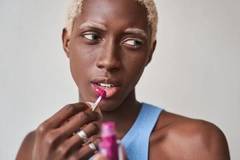Brexit bites £850M out of UK beauty exports to EU as SMEs bear the brunt

01 Nov 2023 --- A report by the British Beauty Council and global economic forecaster Oxford Economics has shed light on the adverse effects of Brexit on the UK beauty market. Notably, it has caused a decrease of £850 million (US$897 million) in the beauty industry’s exports to the EU. The loss has been blamed on customs delays and higher costs in trading.
The report reveals that in 2022, the personal care sector contributed £24.5 billion (US$25.9 billion) to the nation’s GDP while supporting approximately 550,000 jobs.
However, UK exports of personal care products have been decreasing in recent years, whereas it was rising in 2010 and 2016 at an average annual rate of 3.1% and 5.3%, respectively.
“These findings should make the government blush. Increased red tape from their shambolic Brexit deal means fewer opportunities and lost income for UK businesses,” comments Tamara Cincik, founder-CEO at Fashion Roundtable and member of the cross-party UK Trade and Business Commission.
“The government must not gloss over this issue. The message from the UK Beauty industry is clear: reducing checks through beneficial regulatory alignment with our largest market is the foundation to increasing much-needed trade.”
The beauty industry has faced several challenges, including heightened trade barriers and a scarcity of skilled labor due to changes in migration laws, outlines the commissioned report. In 2022, the personal care sector contributed £24.5 billion (US$25.9 billion) to the UK's GDP.
In 2022, the personal care sector contributed £24.5 billion (US$25.9 billion) to the UK's GDP.
Trade barriers and administrative challenges
Trade barriers have emerged in the form of administrative complexities and additional paperwork. These processes have contributed to the industry’s unfamiliarity with the new trade formats, particularly impacting Ireland and Northern Ireland.
Moreover, compliance costs have increased due to novel packaging and labeling regulations.
Forty-nine percent of UK exporters encountered difficulties adapting to the trade changes brought about by the UK-EU trade deal, according to a British Chambers of Commerce survey. This aligns with the opinions of industry experts who express that Brexit has caused delays for personal care businesses.
SME and labor impacts
Furthermore, the report flags that trade barriers as a result of Brexit have disproportionately harmed smaller businesses, which constitute the majority of the personal care sector.
Brexit had a detrimental effect on UK businesses, including escalating costs and amplified bureaucracy, which smaller enterprises, lacking the requisite resources, have struggled to navigate, outlines research by the British Chamber of Commerce.
Additionally, Brexit has led to a skills shortage, particularly affecting the personal care industry that relied on EU workers who can no longer meet the new visa requirements, according to the commissioned report.
Analysis by Oxford Economics finds that in 2022, 59% of full-time employees in the personal care industry earned less than the skilled worker visa earnings threshold, in contrast to 33% of all UK employees. Brexit had a detrimental effect on UK businesses, including escalating costs and amplified bureaucracy.
Brexit had a detrimental effect on UK businesses, including escalating costs and amplified bureaucracy.
EU market reliance
Regarding EU-UK trade, the report suggests that UK exports of personal care products to the EU market showed a weaker performance compared to other markets.
Although it is “difficult” to pinpoint Brexit as the sole cause of trade challenges amid COVID-19 and changing data collection methods, the change in export performance implies that Brexit points to the case, underscores the report.
Oxford Economics’s data evidences the “heavy” dependency of Britain’s personal care industry on exports to the EU market.
Dynamic and adaptable market
The report also outlines structural challenges and opportunities surrounding the growth of e-commerce, increasing use of AR and AI applications, leveraging social media reach and integration of 3D printing.
According to the Office for National Statistics, overall e-commerce sales in the UK grew from 3.4% in 2007 to a peak of 30.7% during the pandemic before falling to 26.5% in 2022. The report showcases that the personal care industry enjoyed this momentum — online channels in the sector grew from 23% of total revenue in 2017 to 40% in 2022.
Moreover, AI has supported businesses in the sector to aid consumer purchasing, supply chain management and customer analytics. AR tools such as e-makeup and virtual try-ons have opened personalization channels that are popular and “help contribute to sustainability.” The report suggests that UK exports of personal care products to the EU market showed a weaker performance compared to other markets.
The report suggests that UK exports of personal care products to the EU market showed a weaker performance compared to other markets.
Earlier this year, Personal Care Insights spoke to Alice Chang, CEO and founder of Perfect Corp., about how such digital solutions can reduce packaging waste and drive environmental sustainability.
Last week, Google launched AR beauty tools enabling shoppers to try on hair color and foundations on mobile browsers virtually, while enabling brands to promote their products with AR beauty advertisements.
In August, the UK Office for Product Safety and Standards opened a safety consultation for modernizing product safety laws to “ensure they are fit for the digital age.” The government revealed its plans to “overhaul” its rules, including the Cosmetics Regulation, so that it can better regulate emergent technologies and new shopping habits.
UK gov activities in the beauty sector
Even while weathering the impact of curtailed exports, the British beauty industry has seen support this month from the UK Department for Work and Pensions, which has been encouraging local jobseekers to explore the range of professions offered within the sector.
“The British beauty industry makes a bigger contribution to the UK’s GDP than the creative, arts and entertainment sector and the aerospace manufacturing sector, however, many people are unaware of the diverse range of opportunities available in the sector,” comments Millie Kendal, the British Beauty Council’s CEO.
By Venya Patel












